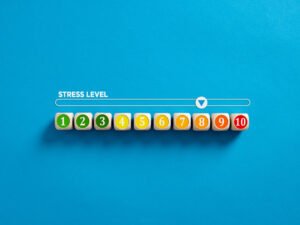In addition to being a “don’t get killed” machine, your brain is on a mission to “match” incoming data (sights, sounds, smells, physical experiences) with what it has stored in its memory banks. This is its quick way of deciding what is important to keep and what needs to be ignored.
And that is where the train will often begin to leave the track!
Because it is processing so much sensory data your brain will delete, distort and generalize anything that doesn’t match the beliefs/”rules” it has on file. This means that you aren’t really reacting to what is happening in the moment, you’re reacting to what your memory has stored.
Your brain is asking:
“who” is this person just like?
“what” does this remind me of?
“where” have I experienced this before?
“when” have I felt this way before?
“how” is this just like another time this happened?
It’s important to notice when your thought process has been hijacked because otherwise, you’ll just keep repeating the same experiences and creating the same type of situations for yourself. Have you ever had a time in your life when there was an ‘incident’ that you later reviewed and said to yourself “I have no idea why I blew up like that”?
Another example – if selling more golf lessons is part of your ‘to do’ list every week, and if you’re procrastinating about contacting people, it’s likely because, at an unconscious level, your mind is matching all the times you’ve done the same thing, and it didn’t feel so good. Your brain has recorded every bit of discomfort and every feeling of ‘failure’ you had during the process of doing this in the past. And now it’s sure that is what’s about to happen again. No wonder you need to check your social media feeds one more time. I know this one because I used to live this one.
So, what’s the answer to changing your automatic response? The first thing is to become more of an observer of your habitual responses. One of THE BEST things you can do in the moment of doubt is to ask yourself “what is this reminding me of?” and when you get the answer “that I’m really not very good at this, if people want a lesson, they’ll call me” you may want to take a deep breath before you CHOOSE what to do (or not do!).
The other is to address the situation after the fact by tapping on it. This is the most effective way to change, first and foremost, how you feel about the particular situation (or pattern that keeps repeating in your work/life). Secondly, it will give you the ability to have different thoughts and beliefs/ “rules” about what’s happening which in turn, can open you to new solutions and a new way of handling reaching out to people and building your business. Just sayin. 😉





